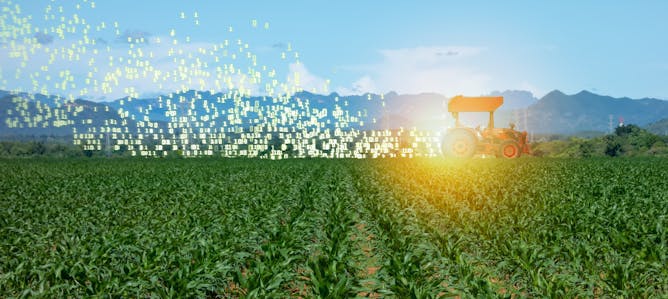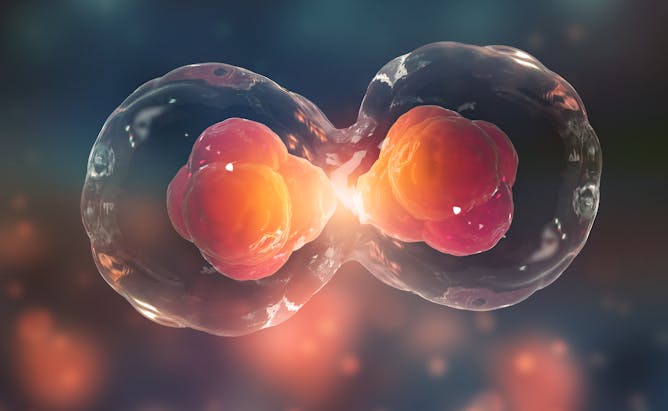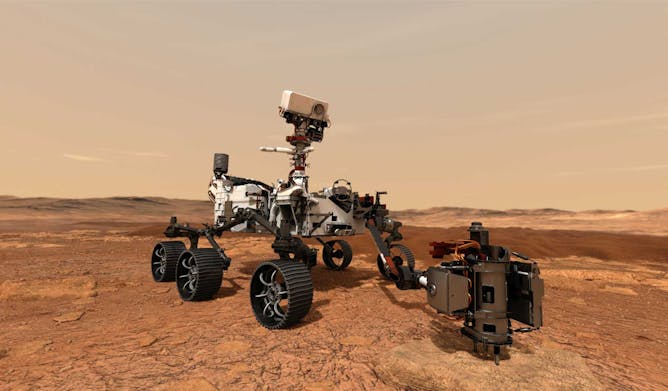
Soon robotic smart tractors will drive themselves through fields and will use data to plant the right seed in the right place and give each plant exactly the right amount of fertilizer, cutting down on energy, pollution and waste.
(Shutterstock)
Lenore Newman, University of The Fraser Valley; Evan Fraser, University of Guelph
Year round local food production is within our grasp, and will slash agriculture's climate impact — but only if we embrace agricultural technology.
|

Those in remote communities struggle with connectivity issues due to having to rely on satellites to go online. Big tech companies can help them.
Tatiana Syrikova/Pexels
Catherine Rosenberg, University of Waterloo; Andrew Lappalainen, University of Waterloo
It's time to create a special remote status for communities that struggle with connectivity challenges and lack access to high-speed internet.
|

The Hasidic community comprises several communities that take their names from the cities of Eastern and Central Europe where they originated. In Montréal, the Belz and the Satmar are the best known.
(Philippe Montbazet)
Frédéric Dejean, Université du Québec à Montréal (UQAM); Valentina Gaddi, Université de Montréal
Some Jewish prayers are not only about an individual connection with God. They have a community dimension that is essential to their conduct.
|

Asexual reproduction can — through cell division, or meiosis — take place without the need for sperm.
(Shutterstock)
Root Gorelick, Carleton University
Perceptions about the role of sperm have changed over time, but asexual reproduction doesn't need sperm for fertilization.
|

Given the observed and anticipated growth of telemedicine since the beginning of the pandemic, it would be a good idea to clarify and co-ordinate the rules applicable to it in Canada.
Shutterstock
Marco Laverdière, Université de Sherbrooke
The legal uncertainty surrounding telemedicine services is not without consequences. Patients may not have access to public protection remedies.
|

Perseverance à l’œuvre.
NASA/JPL-Caltech
Samantha Rolfe, University of Hertfordshire
La présence de méthane dans l’atmosphère est un indice intéressant qui suggère que la vie pourrait exister sur Mars.
|
Health
|
-
Mosoka Fallah, University of Liberia
Countries in the West Africa region are in a very different position to seven years ago. They now have the experience of the past as well as new tools to tackle Ebola.
|
|
Science + Technology
|
-
Diana Bossio, Swinburne University of Technology
Facebook pulling the plug on Australian news will cause short-term disruption, but readers and media will recover.
-
Fabrice Sarlegna, Aix-Marseille Université (AMU); Chris Miall, University of Birmingham; Jonathan Cole, Bournemouth University; Robert Sainburg, Penn State
Proprioception is the sense that allows us to rapidly know without looking where each part of our body is.
|
|